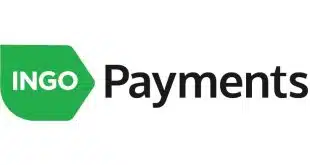Proponents of same-day settlement of automated clearing house transactions are now pinning their hopes on an enhanced same-day service from the Federal Reserve that contains many elements in a proposal from ACH governing body NACHA that failed last August despite widespread banker support. The beefed-up Fed service, however, still has features that could limit its success.
Some 31 banks have adopted the enhanced service since the Fed announced it about three weeks ago, nearly double the 16 that used the limited same-day service the Fed began in 2010, according to Steven Cordray, project director at the Federal Reserve Bank of Atlanta and product manager for same-day ACH. The Fed is one of only two ACH operators in the U.S.
“We’ve gotten quite a bit of interest and excitement since we announced it on April 1st,” Cordray told a packed meeting room Monday at NACHA’s Payments 2013 conference in San Diego. He admitted the numbers are still “very small,” but he anticipates many more banks will sign on. Tulsa-based Bank of Oklahoma is the most prominent user so far.
“Banks, as I said, may be interested but they’re waiting for others to participate … certainly I’m getting the feeling that we’re going to see significantly more adoption than we have in the past through efforts the Fed is doing and others who are interested in same-day ACH,” Cordray said.
Founded in the early 1970s, the batch-based ACH network faces increasing pressure to speed up clearing times as check image exchange and new services from mobile-payments developers, processors, and banks themselves promise much faster electronic transactions for consumers and businesses. Most ACH transactions currently settle in about a day. NACHA last year submitted to a membership vote a same-day settlement plan called Expedited Processing and Settlement (EPS). Two years in the making, the plan received a majority vote but fell short of the 75% it needed to take effect.
In his role as moderator of a panel mulling same-day ACH, Cordray asked his panelists why they thought last year’s proposal failed. Without naming bank names, speculation arose again from the audience that some of the nation’s biggest banks voted against it to protect their lucrative existing payment services (wire transfers, payment cards, and even person-to-person payments) from low-cost ACH competition. NACHA doesn’t disclose how its members vote.
“I haven’t seen a lot of transparency [from banks],” said panelist Rebecca Garrett, senior director of financial operations at mega-retailer Wal-Mart Stores Inc. “The perception among the corporates is that it was revenue protection.”
Another panelist, Peter A. Davey, vice president and director of enterprise payments at Capital One Financial Corp., said same-day ACH failed “due to a timing issue.” Bankers last year spent considerable time dealing with more urgent issues, he suggested, particularly new regulations arising from 2010’s Dodd-Frank Act and the Consumer Financial Protection Bureau that the law authorized.
The expanded FedACH SameDay service includes many features in the EPS plan. It covers both credit and debit ACH transactions whereas the Fed’s earlier service covered only debits. It includes all of NACHA’s so-called standard entry class (SEC) transaction codes except International ACH Transactions (IAT) and two check-truncation codes. Dollar limits are largely gone, unless a particular SEC code’s rules already have them.
But the plan has limitations. It’s voluntary for receiving banks, so it is not ubiquitous among financial institutions. It also imposes tight operational deadlines on banks, deadlines some at the session thought make it tough for smaller banks to use the service.
Another panelist, Cary Whaley III, vice president for payments and technology policy at the Independent Community Bankers of America, a Washington, D.C.-based trade group of small banks, said the lack of ubiquity indeed was a drawback. But he urged banks to sign on with the expanded service and then work for improvements. “We’ve got to have this … there’s isn’t a NACHA ballot out there, so we need to vote with our feet,” he said. (The ICBA on Monday issued a statement expressing its support for same-day ACH.)
Davey of Capital One, a large credit card issuer and bank owner based in McLean, Va., also said banks need to move now on same-day ACH. “If we don’t do it, we’re going to become obsolete,” he said. “Your customers are going to want this.”
n
n







